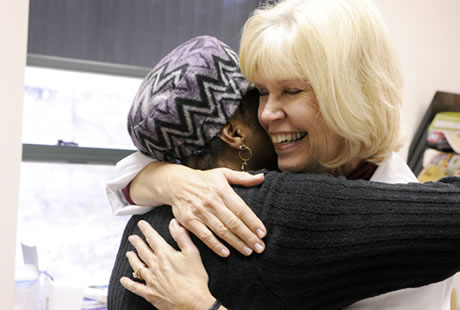If you live in Atlanta, chances are you’ve passed the Ponce de Leon Center a hundred times and not seen it.
The building is gray and nondescript, set a discreet distance away from its namesake street in Midtown Atlanta. Signage is intentionally poor. "There’s no question we don’t put a lot of signs up," says medical director Wendy Armstrong. "There is still a profound amount of stigma, and if you walk in, people assume you have AIDS."
Over the past two decades, thousands of Georgians living with HIV/AIDS have walked into this former church administrative building, donated to Grady Hospital in the early 1990s. A part of the Grady Health System and staffed by Emory doctors and researchers, this clinic serves about 5,200 people.
The patients who come here are mostly poor, and mostly minorities, working low-wage jobs and living in unstable housing situations with little access to medical care. Just 3% have health insurance, and some are illegal immigrants. Many already have progressed to late-stage AIDS by the time they make it to the Ponce Clinic, having lived with the disease for many years while it went undiagnosed and untreated.
"They’re very sick," says Emory nursing professor Marcia Holstad, who has worked with the women’s clinic since its beginnings as a small, unhoused, volunteer-run program in 1990. "A lot of the time HIV is the least of their problems. They have issues with their children, housing, substance abuse, and depression."
For Holstad, Armstrong, and other Emory faculty, doing this work goes beyond traditional patient care. Armstrong says that Atlanta’s epidemic of late-stage AIDS in vulnerable populations is so profound that despite her other research interests, "it became clear that my focus has to be finding people who are affected, linking them to care, and retaining them in care. If we can’t get people into care, we’ve failed this population."

